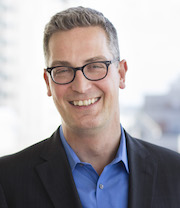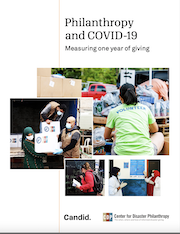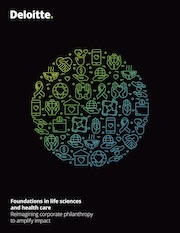Site Search
- resource provided by the Forum Network Knowledgebase.
Search Tip: Search with " " to find exact matches.
Capacity building enables nonprofit leaders and organizations to develop the skills and resources they need to improve their work. Since each situation is unique and circumstances are always changing, effective capacity-building support is tailored to best suit the needs of grantees. This publication offers practical guidance and considerations to help grantmakers design an impactful approach.
On a recent Saturday, the Jeremy Johnson, the Newark Philanthropic Liaison and over 150 arts lovers, historians, and community leaders gathered to reflect on the past, acknowledge the present, and imagine the future of the historic Newark Symphony Hall. The liaison shares his observations from the conference.
Newark Symphony Hall, the aging national treasure on the south end of Broad Street in downtown Newark, comprises a 2800-seat main auditorium, a 1,000 seat-auditorium/banquet hall, a 200-seat black box theatre, a dance studio, a new TV studio, and much more.
Its history is unsurpassed. The place has hosted every imaginable superstar since 1925, from Toscanini to Marian Anderson to Elvis Presley to Johnny Cash, Judy Garland and Newark's own Sarah Vaughan. It's going to take millions (estimates ranged from $40M to $100M or more) to restore it to its former glory.
The planners are on the right track, engaging experts, philanthropists, historians, residents, educators, government and corporate leaders, and arts and nonprofit groups. However, to justify the outlay of millions in public-private funds during these economic times, Newark Symphony Hall (NSH) will need to frame this nascent campaign beyond that of the restoration of another culturally important edifice.
Sure, the arts and history will play an important role in its rebirth, but for this effort to be truly achievable, sustainable and worthwhile, NSH should consider:
- Jobs, jobs, jobs. Can the renovation, preservation, retrofitting and weatherization of NSH be implemented as a job training laboratory for Newark workers to gain skills in "green" trades? This experience can then be exported to the broader community where workers can help green energy-inefficient homes and buildings throughout Newark and the region. NSH, which has a long-term lease with the city, could join forces with the Mayor in attracting public and private investment for green job development and energy-saving initiatives. Natural allies in this effort would be Lincoln Park Coast Cultural District (LPCCD), which is achieving inroads with green job training, or the Obama-endorsed YouthBuild, which has a strong outpost in Newark.
- Education. Through the Amistad Commission, the state now requires that African American history be taught as in integral part of United States History. Such history resonates at NSH. Think of Paul Robeson, Mahalia Jackson, Nina Simone or Marian Anderson, who performed more at NSH than any other hall during her first years of touring--she was the first black artist to perform at NSH in the 1940s. School systems could be encouraged to subscribe to annual NSH tours and learn of this rich history, providing ancillary income to NSH while also instilling invaluable lessons to our youth.
- Space usage. Think creatively about use of the Hall's enormous spaces. Possibilities could range from the creation of New Jersey's largest green roof to rental possibilities for space-starved charter schools and after-school programs.
- “Think big” was the advice of Larry Goldman, President and CEO of NJPAC. Could NSH be re-imagined as the nation's largest LEED-certified renovated historic theater, designed on a template of green-job apprenticeships for urban residents?
- Secure the right leadership. Philip Thomas, NSH's estimable executive director and the growing board, mustn't fall prey to provincialism nor favoritism as it outlines a formidable mission, development, and operational plans for this initiative. Call on leadership from within the community but also from beyond it. This project is regional and even national in scope and it should be approached as such.
- Finally, leverage partnerships. Tap the expertise of higher education institutions. Rutgers historian and Newarker Clement Price, who spoke at the convening, is a terrific example. Historic and cultural agencies are obvious partners, but also seek out federal and state sources, such as departments of labor, transportation, energy, education, human services, bureau of justice, and organized labor. Thomas stated there may be some private dollars to help initiate early studies and linkages. This is good news, for these can leverage the larger resources and community engagement needed to ultimately make the Newark Symphony Hall dream come true.
Thank you to everyone who attended CNJG’s 2019 Annual Meeting and Holiday Luncheon.
The theme for the 2019 Annual Meeting and Holiday Luncheon was “Challenging Power Dynamics to Build Strong Partnerships,” and focused on how philanthropy can forge more transparent, trusting, and dynamic relationships with nonprofits and the communities they serve.
The pre-meeting workshop, “Finding Balance: Addressing Grantmaker-Grantee Power Dynamics Head-On” was led by Linda Czipo of the Center for Non-Profits and Tim Delaney of the National Council of Nonprofits. The workshop explored ways in which funders could overcome power dynamics. Tim and Linda discussed strategies to create more powerful partnerships, such as multi-year funding, advocacy, and unrestricted general operating support, and shared hero and horror stories to remember when working with nonprofits.
 To close out our event, Phil Buchanan, President of the Center for Effective Philanthropy gave a captivating keynote address entitled “Giving Done Right: The Challenge and Opportunity.” During his presentation, Phil discussed the current critique of philanthropy, reminded us of the importance of working with and reflecting the communities we serve, and left attendees with seven different ways in which we can work more effectively with our partners in the new year.
To close out our event, Phil Buchanan, President of the Center for Effective Philanthropy gave a captivating keynote address entitled “Giving Done Right: The Challenge and Opportunity.” During his presentation, Phil discussed the current critique of philanthropy, reminded us of the importance of working with and reflecting the communities we serve, and left attendees with seven different ways in which we can work more effectively with our partners in the new year.
Together, the social sector has the power, resources, and know-how to respond to our communities’ urgent and long-term needs. Thank you for joining us for this year’s critical conversation on breaking down power dynamics and building strong partnerships.
AGENDA
10:00 am to 11:30 am Pre-Meeting Workshop
11:30 am to 12:00 pm Networking and Registration
12:00 pm to 2:30 pm Luncheon and Business Meeting
Pre-Meeting Workshop: “Finding Balance: Addressing Grantmaker-Grantee Power Dynamics Head-on"
Presenters: Linda Czipo, President & CEO, Center for Non-Profits and Tim Delaney, President and CEO, National Council of Nonprofits
Linda Czipo, President & CEO of the Center for Non-Profits, and Tim Delaney, President and CEO of the National Council of Nonprofits, will present this year’s workshop on how to overcome power dynamics between funders and nonprofits. This workshop will explore ways in which funders can create trusting and transparent relationships with grantees, and further engage nonprofits in their grantmaking strategies. Among other things, we will explore strategies to incorporate full cost funding that strengthens the effectiveness of your grantees' work. Join us for a discussion on how philanthropy can move towards a system of truly partnering with nonprofits in order to maximize the beneficial impact for your community.
The Council thanks our generous event sponsors: Novartis - Signature Sponsor, The Prudential Foundation – Sustaining Sponsor, New Jersey Health Initiatives – Speaker Sponsor, Princeton Area Community Foundation – Gift Sponsor, Devils Care Foundation and Sixers Youth Foundation – Pre-Meeting Workshop Sponsors, Novo Nordisk – Program Sponsor, The Provident Bank Foundation – Performance Sponsor, Blue Cross Blue Shield of New Jersey – Contributing Sponsor, and The Jay and Linda Grunin Foundation – Supporting Sponsor. Additional support provided by NJM Insurance Group.
Annual Meeting Photos
Watch Everyone Deserves a Fair Slice from the Human Services Council.
The Inclusive Growth ScoreTM provides local planners, governments and impact investors with a clear, simple view of social and economic indicators for any census tract in the United States.
A CNJG member queried the Health & Aging listserves asking for sample letters of inquiry. This document includes a few responses from fellow members. If you would like to add yours to this list, please email us.
Two different CNJG members queried the CEO listserve on how/when/how to return to the office following the COVID-19 pandemic. CNJG staff compiled the answers from the responding members removing identifying information of the respondents.
Nonprofit Finance Fund's Annual Survey chronicles the challenges facing the nonprofit sector and calls out some of the targeted investments we can start to agree on as a society to salvage the investment we have collectively made in our social infrastructure. We believe that a coordinated intervention now will not only better prepare us for inevitable future economic crises; it can lead to a happier, healthier community for us all.
A corporate member queried the corporate listserve which technology tools they use for their corporate giving system/platform. CNJG compiled the responses and combined it with previous responses from other technology systems queries to create this list of “Who Uses What Technology Systems.” If your organization is not listed, please email the names of those systems to Craig Weinrich.
CNJG’s community foundation services (through the United Philanthropy Forum) breakdown into three categories:
1. a national listserv for CEOs
2. two in-person boot camp trainings
3. discount on the On-Line CF Express Training
National Listserv for Community Foundation CEOs
CNJG’s listserve for Community Foundation CEOs connects to a national listserv for the CEOs of community foundations. This active listserve allows community foundation CEOs to communicate easily via email with community foundation CEOs from across the country, to pose questions, engage in conversations and more. The service is being made available to our community foundations members as a benefit of your membership with CNJG and is operated by the Untied Philanthropy Forum, which is CNJG’s national network.
If you are interested in participating in this national community foundation listserve, please contact Craig Weinrich.
Community Foundation Boot Camps
The United Philanthropy Forum offers two or more Community Foundation Boot Camps a year that are made available to CNJG members at the member rate as a benefit of CNJG membership. The two-day Community Foundation Boot Camp program offers a comprehensive overview of the structure and operations of a community foundation. The program is an ideal in-depth introduction to community foundations for new community foundation staff, community foundation board members, or more experienced community foundation staff looking for a good refresher.
On-Line CF Express Training
The Forum is partnering with Kansas Association of Community Foundations (KACF) to offer a $400 discount on KACF’s On-Line CF Express Training. The online training and certificate program focuses on core essentials over a 15-module series that covers nearly every aspect of community foundation work: from asset development and quality grants programs design to fiduciary and policy matters. Plus, enjoy 24-hour-access to the easy-to-navigate short (5-15 min) modules in any order from the comfort of a home or an office, in private, or as a group training.
Watch the CF Express Training Promo Video and view a sample module (password: mod15) to learn more. To take advantage of the discount, sign-up at https://cfexpresstraining.com and enter discount code: Forum2018. You can also reference the following attachments for more details.
The Grantmaker Salary and Benefits (GSB) Report is the philanthropic sector's leading source of comprehensive data on U.S. foundation staff, helping organizations of all sizes craft budgets, recruit and retain talent, and set personnel policies. The 2024 GSB Report features salary data for 11,380 full-time staff across 1,006 grantmaking organizations. It includes benchmarking data for 38 distinct positions, staff tenure insights such as departure and turnover rates, demographic information, and more.
If you participated in the 2024 Grantmaker Salary and Benefits Survey, you can access the Council on Foundations’ benchmarking tool on Benchmark Central to run salary, benefits, and demographics comparisons by asset size, grants, geographic location, and grantmaker type.
Members of the Council on Foundations can access the report for free; nonmember price is $549.

As of February 22, 2021, the coronavirus pandemic has claimed the lives of more than 2.5 million people around the world, with an additional 110 million people infected. And while data such as this serves an enormous purpose in understanding the scale and scope of a disaster, aiding experts in determining needs and directing resources, it remains far from the complete picture of the impact of COVID-19 on humanity.
Philanthropy’s response to the COVID-19 pandemic demonstrates that not only can donors be exceedingly generous in a crisis, but they can lead through trust and courage. In this new report, the Center for Disaster Philanthropy and Candid recognize this leadership, as demonstrated by increased overall giving, even if too little of it is in the form of unrestricted grants and funds directed toward Black, Indigenous, and other communities of color. There remains much to be done, especially regarding support for programs that deliver the policy and system changes necessary to redress generations of inequities.
This toolkit is for seasoned donors, donor advised fund holders, foundation trustees, and staff who are taking steps to significantly ramp up the impact of their giving. No longer content with just “making good grants” or “doing good things for the community,” you have taken a fresh look at your goals, strategies, and outcomes and decided that you could do things differently to achieve even more.
We all know that setting bolder, bigger goals for impact is only step one. Implementing strategies and achieving these goals typically involves a winding path full of experiments, iterations, and obstacles. This toolkit is crafted to help seasoned funders anticipate common obstacles to high-impact philanthropy and learn about effective strategies to overcome them.

More than $1 million was awarded to more than two dozen local nonprofits by the Bunbury Fund of the Princeton Area Community Foundation.
The grants, totaling $1,035,205, were awarded to 26 nonprofit organizations in 2023. It marks the fifth year in a row that the Bunbury Fund issued more than $1 million in funding.
"Through our experience as Bunbury Fund Advisors, our team continues to learn about the key issues in our region and what it takes for a nonprofit organization to effectively address them, often as a result of undercapitalization," said Jamie Kyte Sapoch, Lead Fund Advisor and former Community Foundation Trustee. "We believe that the capacity building resources approved by the Bunbury Fund in 2023 will result in meaningful, enhanced delivery of missions for the 26 nonprofit organizations listed below."
For the second consecutive year, New Jersey Community Capital is committing $50,000 to support nonprofits in traditionally underserved areas during Black History Month.
NJCC, based in Newark, is a leading nonprofit community development financial institution — better known as a CDFI — that is specifically giving grants to five cities: Newark, Paterson, Atlantic City, Philadelphia and Syracuse, New York..
This is in keeping with NJCC’s goal to foster sustainable economic development and wealth creation in underserved communities beyond New Jersey’s borders. .
“Echoing the principles championed by Dr. Martin Luther King Jr., the $50,000 pledge is a testament to NJCC’s dedication to social and economic justice,” NJCC CEO Bernel Hall said. “NJCC aims to contribute to thriving, equitable communities by supporting the initiatives and leaders of these cities.”
In anticipation of Columbia Bank’s acquisition of Freehold Bank – scheduled for Saturday, the bank and its foundation awarded grants to 18 organizations totaling more than $100,000.
The funds will be used to support food insecurity, housing initiatives, medical aid and community development within the Freehold area.
Thomas Kemly, the head of the bank and the foundation, said the bank was excited to make the donations – and to acquire Freehold Bank.
“Columbia Bank is thrilled to welcome Freehold Bank to its family,” he said. “Both organizations share a commitment to excellent customer service, superior products and to giving back. Through this acquisition, we’ll introduce new branches and ATM locations with added products and services, paired with the same friendly faces from both teams.”
Several Atlantic City-based nonprofits received funding to further their missions this week.
The Atlantic City Community Fund in partnership with the Community Foundation of South Jersey awarded grants 37 organizations during a reception at Cardinal Restaurant in Atlantic City.
The annual celebration brought together local changemakers, fund partners and community leaders to recognize the impactful work being done across the city. Grantees had the opportunity to connect, share their missions and engage with the fund's board and supporters.
“The Atlantic City Community Fund is dedicated to empowering local organizations that are on the frontlines of positive change,” board President Benjamin Zeltner said. “This year’s group of grantees reflects the heart, resilience, and innovation of Atlantic City.”

